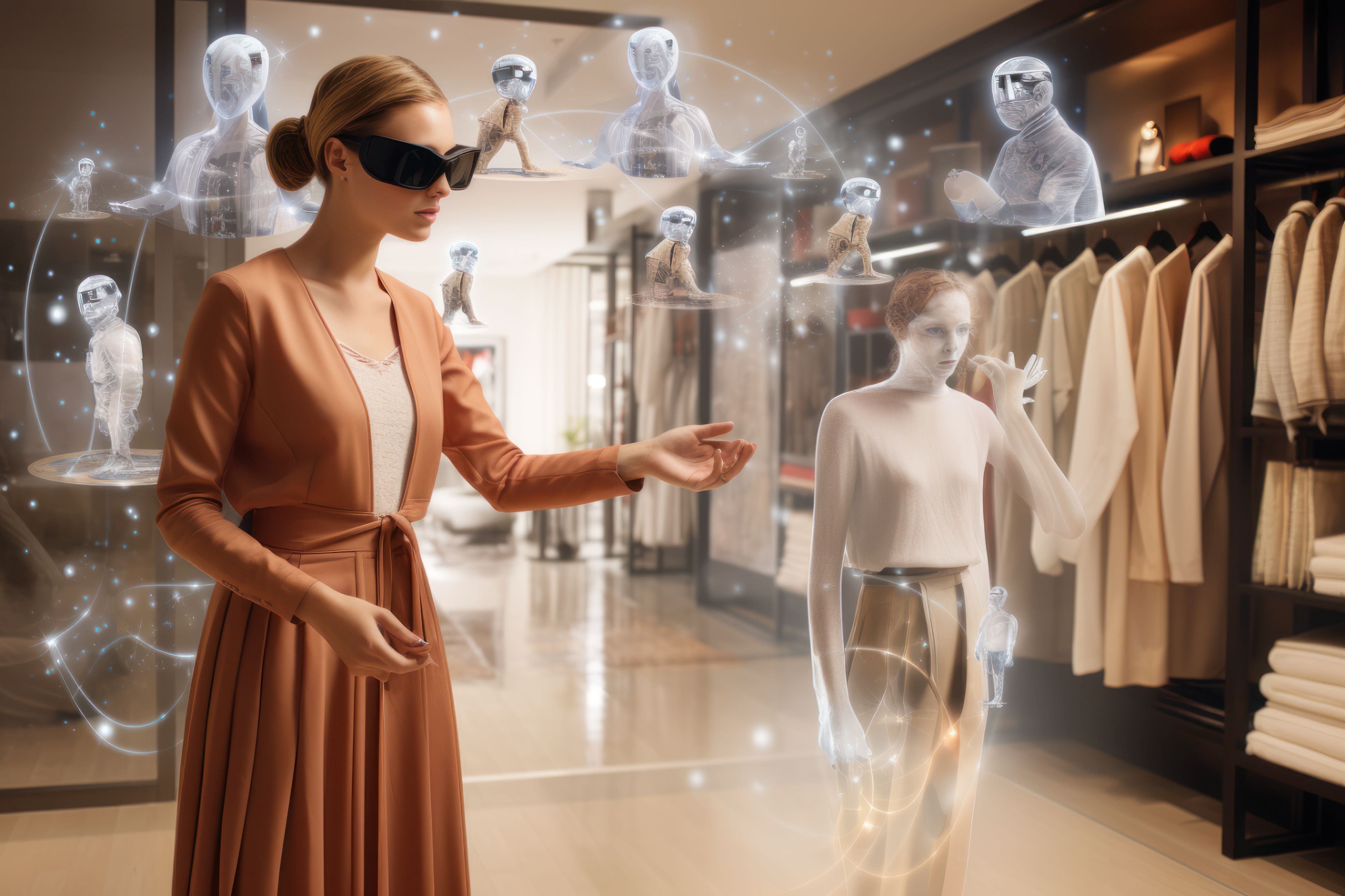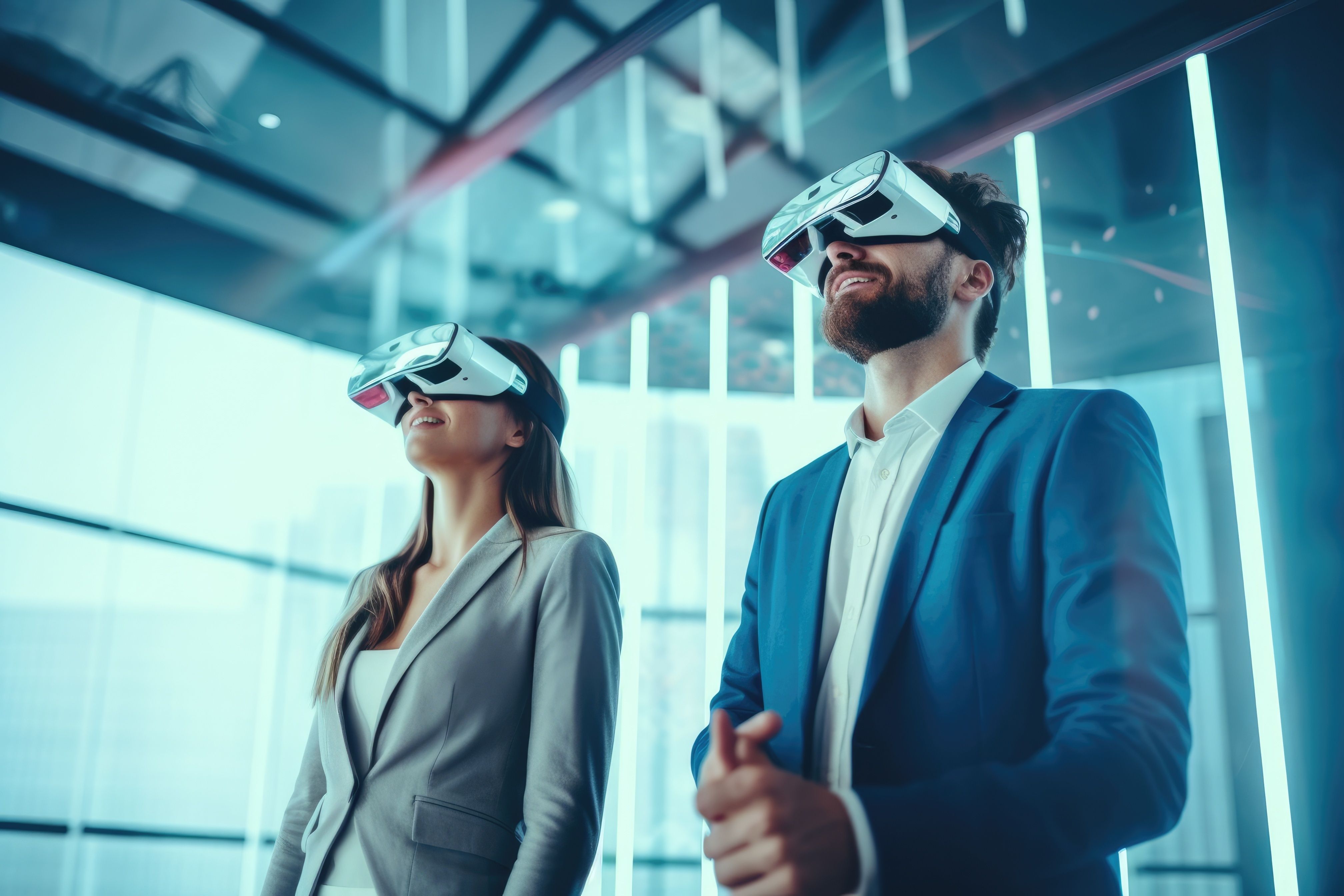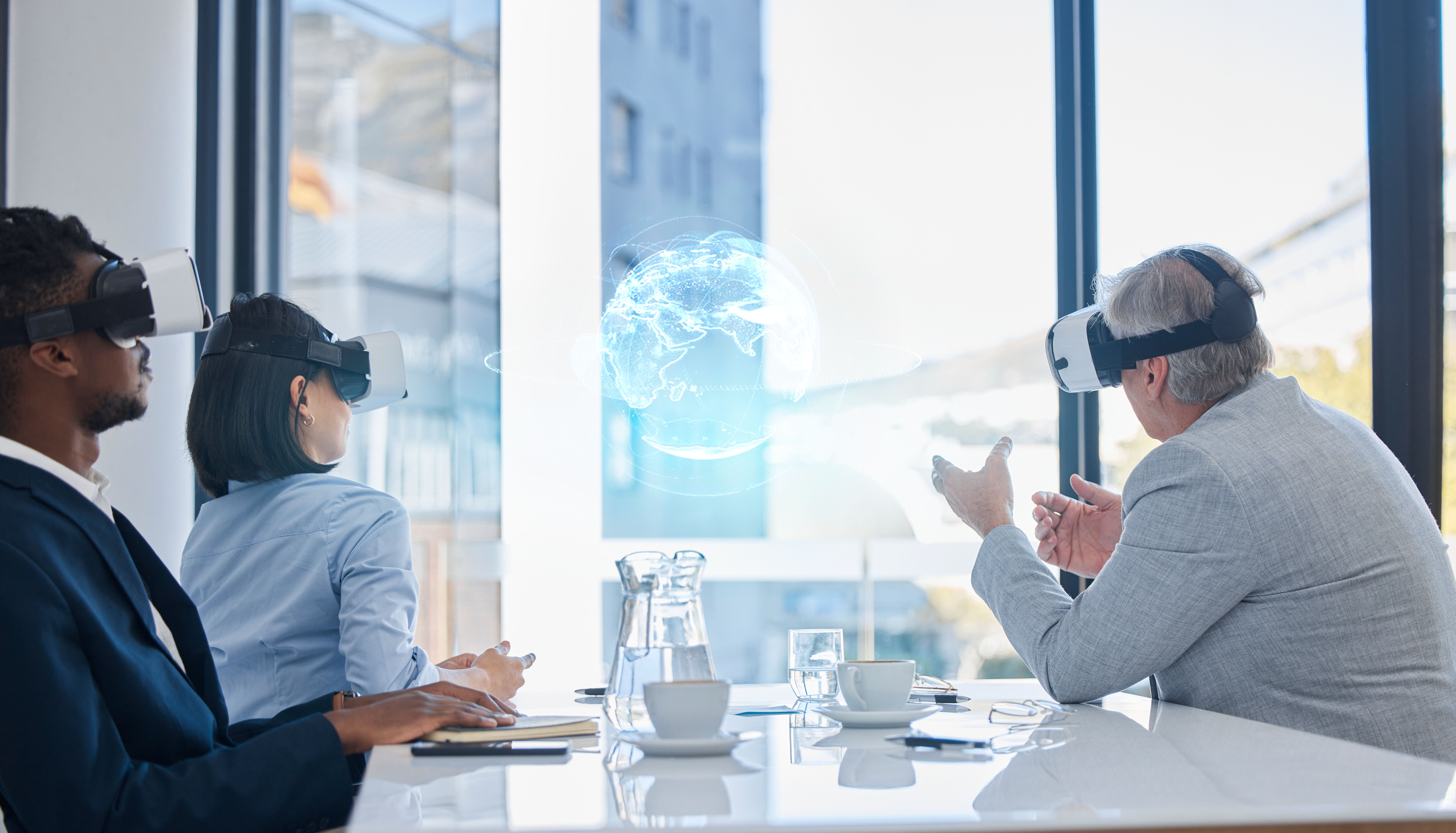Thanks to the rapid technological change, the essence of marketing has been transformed. Today’s marketers must compete for consumers’ attention across numerous channels, including social media, podcasts, streaming platforms, and the Internet. In this landscape, virtual reality (VR) has become an essential tool for marketers, as it enhances branding and customer experience. In this blog post, we’ll discuss how VR technologies are changing the way we think about marketing success.
Virtual Reality Marketing Explained
VR marketing is related to introducing immersive reality technologies to enhance campaigns, strategies, or plans. For instance, you can utilize VR to improve brand awareness, content production and storytelling, and customer engagement.
You can also use virtual reality to engage your customers with your brand and create interactive experiences, like telling your story or showcasing a new product in a digital setting. With VR technologies, you have the power of data. As a result, you can gather information about consumers’ behavior and utilize it to enhance marketing initiatives or decision-making.
Gucci Town is an excellent example of VR marketing. This is a metaverse where people can explore a high-end fashion town, learn about its history, and connect with other people. If you access Gucci’s metaverse, you can create your avatar, play mini-games, interact with others, and use your purchased clothes.
VR Technology Market: Unlocking Its Potential Uses
VR is flourishing in the marketing industry because of its benefits for businesses of all sizes. Wanting to learn more? Let’s take a closer look at the potential of virtual reality technologies in three industries: tourism, retail and fashion, and real estate.
Virtual Reality and the Future of Tourism
The future of tourism looks amazing with VR since it revolutionizes how people experience historical sites or explore cities. In tourism, virtual reality has two uses:
Tourism and cultural heritage: VR can transport you to any other location right from your couch. With VR headsets, you can take a virtual tour of historical sites, like Iguazu National Park in Argentina or Ouro Preto in Brazil. You can also visit ancient ruins, like Liangzhu in China.
Mobility and transportation: Additionally, you can utilize virtual reality if you’re in Paris and need to explore interactive 3D maps to find a famous restaurant. You can also track destination reviews in real time and explore natural settings in innovative ways if you’re planning to visit a new country in the Middle East.
VR utilization in the tourism industry has many benefits, including enhanced tourist experience, accessibility, inclusion, revenue, cost savings, sustainability, and competitive advantage.
Virtual Reality and the Future of Retail
The e-commerce, retail, and fashion industry has undergone significant changes due to the COVID-19 pandemic. Virtual reality has played a crucial role in revolutionizing this sector. VR technologies have steadily enhanced the shopping experience, making it more engaging and interactive. This has resulted in more sales, revenue, and business growth.
Here are some of the potential uses and benefits of VR in the ecommerce, retail, and fashion industry:
• Virtual showrooms: Your customers can explore virtual showrooms and visualize products or clothes in a very realistic way. Since VR provides customers with a unique, immersive, engaging experience, brand awareness, customer satisfaction, and sales will be boosted.
• Personalized shopping experience: Personalization is one of the cornerstones of marketing. Through virtual reality, retailers can personalize the shopping experience. To give you an example, customers can access the metaverse, build their avatars, and use their money to purchase customized furniture for their homes.
• Effective marketing campaign: By utilizing VR, retailers can create interactive campaigns in the metaverse, attracting thousands of customers. This will promote sales and increase awareness of new products.
Virtual Reality and the Future of Real Estate
VR technologies are revolutionizing the real estate industry globally, transforming the processes of buying and selling homes. Real estate agents are bridging the gap between real and virtual worlds to elevate the experience of finding a dream home to new heights.
Do you want to learn more about the uses and benefits of virtual reality in real estate? Here are some of them:
• Virtual tours: Similar to tourism, VR is utilized by real estate companies to offer potential buyers the opportunity to experience a property without being physically present. This not only enhances the customer experience but also strengthens brand awareness for real estate agents.
• Visualize renovation: With virtual reality technologies, customers can visualize the future appearance of their homes post-renovation. Additionally, by leveraging VR, homeowners can make informed decisions regarding desired renovations and gain insights into improvements without incurring additional expenses.
• Customized offers: Real estate agents can utilize 3D home models to provide personalized offers to prospective buyers, enabling them to envision their future homes with greater realism. This real-time visualization of the property enhances communication and improves the overall buying experience.
Discover the Benefits of VR Marketing
Virtual reality (VR) marketing has a multitude of advantages that can fuel business growth and transform customer experiences. Let's discuss these benefits!
More Immersive Experiences
VR marketing offers a significant advantage: the power of immersive experiences that elevate customer engagement to unparalleled heights. According to Forbes, clients can interact with products and services in ways that surpass traditional advertising with virtual reality.
For instance, through VR tutorials, they can gain in-depth knowledge and a practical understanding of product usage, fostering a stronger connection and boosting their confidence in making informed purchasing decisions.
With VR, brands can create memorable and impactful experiences that leave a lasting impression on clients, driving brand loyalty and customer satisfaction to new horizons.
More Personalized Experience
VR marketing has the power to deliver highly personalized experiences that resonate deeply with consumers. By offering tailored and unique virtual reality experiences, brands can craft stronger emotional bonds with their audience, leading to increased engagement and ultimately driving sales.
Hyper-personalization becomes achievable as it capitalizes on data and user insights to customize the content and interactions based on individual users' preferences, interests, and even their past behaviors.
This level of personalization not only enhances the user experience but also establishes a sense of exclusivity and relevance, making the brand stand out in a crowded marketplace.
Data Analytics
VR marketing offers a myriad of advantages, but one truly stands out: its extraordinary potential for data collection. By harnessing the immersive capabilities of VR technology, businesses can delve into the intricate world of user behavior, capturing not just actions but also emotions and reactions.
This wealth of detailed information becomes a treasure trove for understanding customer needs, preferences, and pain points. It empowers businesses to refine marketing strategies and create personalized, captivating experiences for their target audience.
With VR, the possibilities for data-driven insights and customer-centric approaches are truly boundless.
Best Practices for Implementing VR Marketing Campaigns
When it comes to implementing successful virtual reality marketing campaigns, there are several best practices to keep in mind. Let's explore them.
Understand Your Audience
Before embarking on a VR marketing campaign, it's crucial to have a solid understanding of your target audience. These questions can help you:
• Who are they?
• What are their interests?
• What kind of VR experiences might they enjoy or find useful?
The more you understand your audience, the better you'll be able to craft VR experiences that resonate with them and meet their needs.
Create Immersive and Interactive Experiences
The real power of VR lies in its ability to provide users with immersive and interactive experiences. Don't just use VR as a new medium to deliver the same old content.
Instead, think about how you can leverage VR's unique capabilities to create truly immersive experiences that involve your customers in new ways.
Leverage Data Analytics
As mentioned earlier, one of VR's key strengths is its ability to collect granular data about user behaviors and responses. Make sure to utilize this strength in your VR marketing campaigns. Use analytics to understand how users are interacting with your VR experiences, and use this insight to refine and improve your campaigns.
Test and Iterate
Like any other marketing campaign, it's important to test your VR experiences, collect feedback, and make improvements based on what you learn. This might involve A/B testing different elements of your VR experiences, soliciting user feedback, or analyzing consumer behavior data to identify areas for improvement.
Keep Up with the Latest Trends
It’s important to keep up with the latest trends and developments in the VR space. This might involve:
• Attending VR industry events
• Following VR news and blogs
• Networking with other professionals in the VR marketing field
Conclusion
Virtual has sparked a revolution in marketing strategies worldwide, unlocking a realm of unparalleled possibilities.
By immersing customers in captivating experiences, tailoring content to their preferences, and harnessing the power of data analytics, VR marketing captivates and converts. From the realms of tourism, retail, to real estate, VR marketing transforms customer experiences like never before.
To unlock the full potential, dive deep into understanding your audience, craft mesmerizing immersive experiences, harness the insights provided by analytics, and keep up with the latest trends.
Ready to embark on this thrilling adventure? Reach out to Vection Technologies today and infuse your marketing team with the power of VR technologies!



